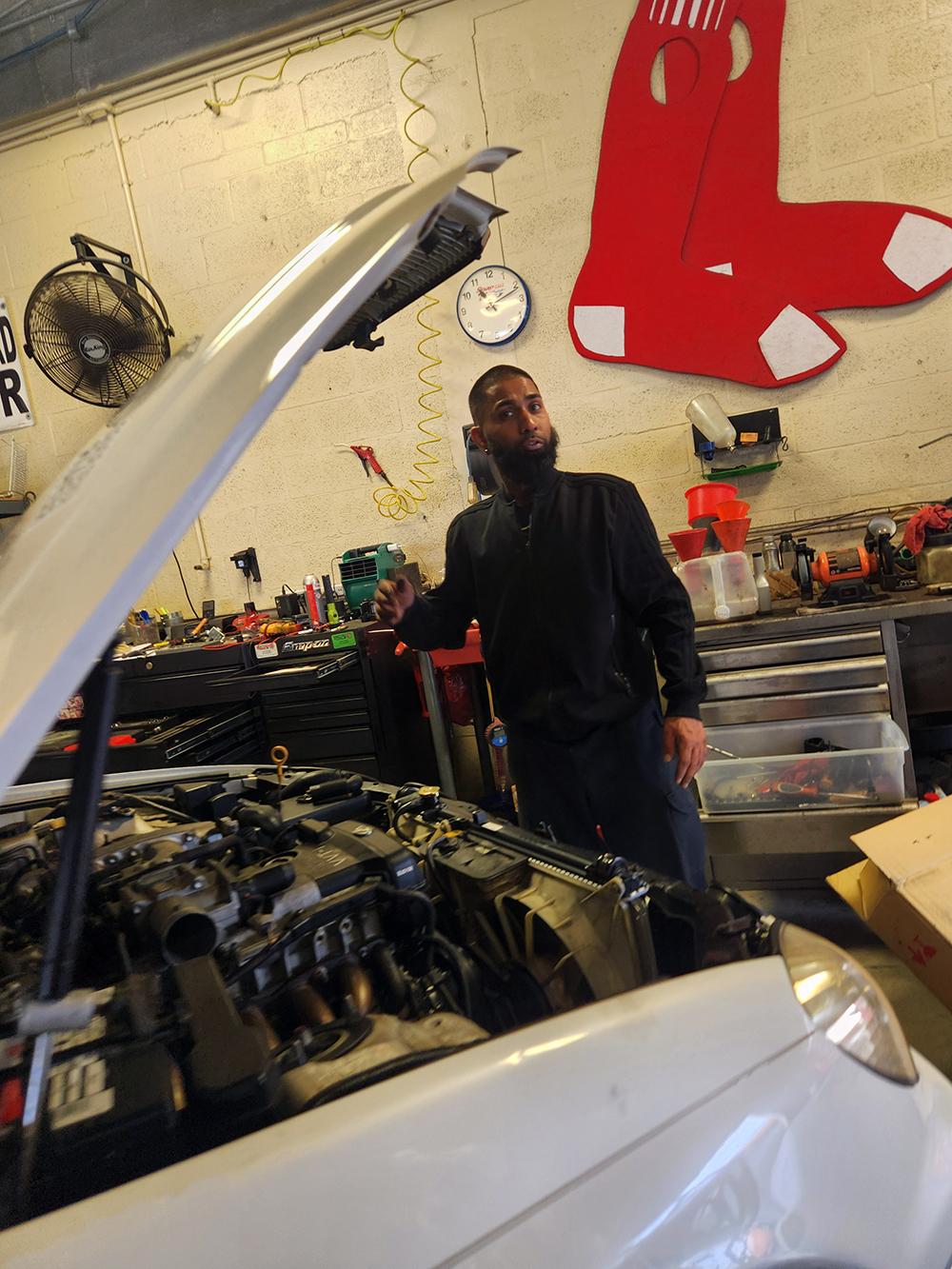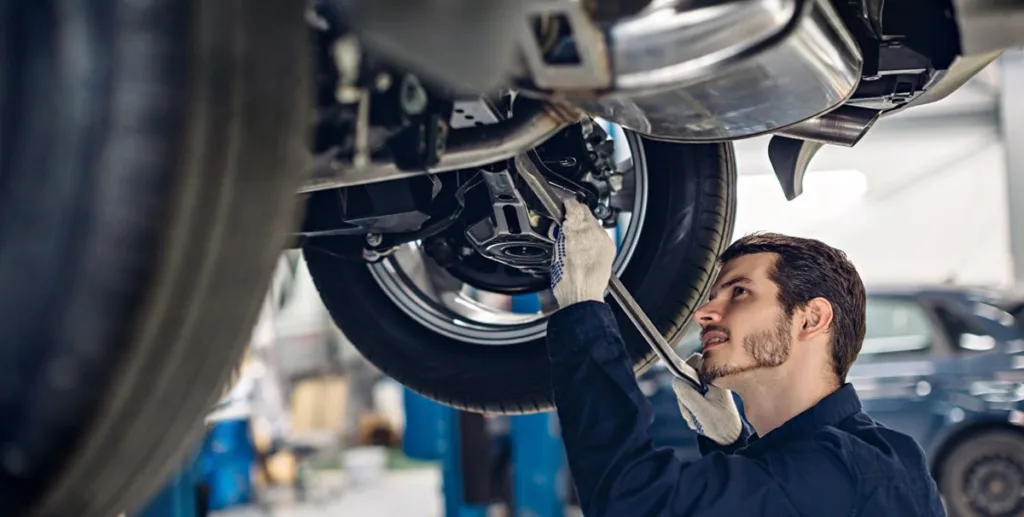All Categories
Featured
When your auto begins to overheat, it can be a frightening and stressful situation. Nevertheless, comprehending exactly how to react in these moments and taking actions to stop future getting too hot can aid safeguard your vehicle and prevent pricey repair work. Here's what to do if your vehicle overheats and just how to avoid it from taking place once more.
What to Do If Your Auto Overheats. Pull Over and Shut Off the Engine The initial thing you ought to do if your automobile begins to overheat is to draw over to a risk-free location, such as a parking area or the shoulder of the roadway. Switch off the engine right away to avoid more damages. Running an overheated engine can create irreparable damage to the interior elements, including the radiator and cyndrical tube heads.
Enable the Engine to Cool After switching off the engine, give it time to cool. Opening the hood can aid release warmth, however be careful as the engine and surrounding areas might still be exceptionally hot. Wait at the very least 15-20 minutes before trying any kind of more activities.
Check the Coolant Degree Once the engine has actually cooled down, check the coolant degree. Never open the radiator cap while the engine is hot, as this could create warm coolant to spray and shed you.
Evaluate for Leakages or Broken Hoses While you are examining the coolant level, look for any type of visible leakages or harmed hoses under the hood. Fractured or damaged tubes can create coolant to leakage out, resulting in an overheating engine. If you spot any kind of problems, you might require to ask for roadside support or a tow to obtain the cars and truck to a technician.
Require Aid If you can't determine the root cause of the getting too hot or the concern persists after rounding off the coolant, it's ideal to ask for roadside support. Driving with an overheated engine can cause extreme damage to your car and leave you stranded.
![]()
How to avoid Your Car from Getting too hot. Examine Coolant Levels Consistently One of the primary causes of getting too hot is low coolant levels. If needed, make it a practice to inspect your coolant degrees regularly and cover them off. Describe your car's handbook for the recommended coolant mixture and upkeep periods.
Inspect Your Radiator Your radiator plays a crucial function in maintaining the engine cool. Guarantee there are no blockages or particles obstructing air flow with the radiator. If your radiator is blocked or harmed, it might not function effectively, resulting in getting too hot.
Maintain Your Air conditioning System The cooling system should be purged and filled up occasionally. Gradually, coolant can end up being infected or lose its effectiveness. Follow the manufacturer's suggestions for flushing the system, normally every 30,000 to 50,000 miles.
Display the Thermostat and Water Pump The thermostat regulates the temperature level of the engine, while the water pump circulates coolant via the engine. If either of these elements fails, it can cause the engine to get too hot. Have your technician check the thermostat and water pump throughout regular maintenance.
Stay Clear Of Overloading the Lorry Overloading your automobile, specifically on hot days or long journeys, can stress the engine and the cooling system. Be conscious of your automobile's weight limits and attempt to prevent lugging heavy loads, particularly when driving in severe temperature levels.
Drive with Care Aggressive driving, such as speeding or quick velocity, can boost engine stress and anxiety and heat production. Decrease, particularly on warm days or when driving up high slopes, to decrease the danger of overheating.
![]()
Final thought. Understanding what to do if your cars and truck overheats can protect against additional damage to your engine and aid you handle the scenario safely. By regularly examining your coolant degrees, checking the radiator and hoses, and keeping the air conditioning system, you can decrease the danger of overheating. With proactive treatment and appropriate upkeep, your lorry will remain in good condition, ensuring you remain secure and prevent costly fixings later on.
What to Do If Your Auto Overheats. Pull Over and Shut Off the Engine The initial thing you ought to do if your automobile begins to overheat is to draw over to a risk-free location, such as a parking area or the shoulder of the roadway. Switch off the engine right away to avoid more damages. Running an overheated engine can create irreparable damage to the interior elements, including the radiator and cyndrical tube heads.
Enable the Engine to Cool After switching off the engine, give it time to cool. Opening the hood can aid release warmth, however be careful as the engine and surrounding areas might still be exceptionally hot. Wait at the very least 15-20 minutes before trying any kind of more activities.
Check the Coolant Degree Once the engine has actually cooled down, check the coolant degree. Never open the radiator cap while the engine is hot, as this could create warm coolant to spray and shed you.
Evaluate for Leakages or Broken Hoses While you are examining the coolant level, look for any type of visible leakages or harmed hoses under the hood. Fractured or damaged tubes can create coolant to leakage out, resulting in an overheating engine. If you spot any kind of problems, you might require to ask for roadside support or a tow to obtain the cars and truck to a technician.
Require Aid If you can't determine the root cause of the getting too hot or the concern persists after rounding off the coolant, it's ideal to ask for roadside support. Driving with an overheated engine can cause extreme damage to your car and leave you stranded.

How to avoid Your Car from Getting too hot. Examine Coolant Levels Consistently One of the primary causes of getting too hot is low coolant levels. If needed, make it a practice to inspect your coolant degrees regularly and cover them off. Describe your car's handbook for the recommended coolant mixture and upkeep periods.
Inspect Your Radiator Your radiator plays a crucial function in maintaining the engine cool. Guarantee there are no blockages or particles obstructing air flow with the radiator. If your radiator is blocked or harmed, it might not function effectively, resulting in getting too hot.
Maintain Your Air conditioning System The cooling system should be purged and filled up occasionally. Gradually, coolant can end up being infected or lose its effectiveness. Follow the manufacturer's suggestions for flushing the system, normally every 30,000 to 50,000 miles.
Display the Thermostat and Water Pump The thermostat regulates the temperature level of the engine, while the water pump circulates coolant via the engine. If either of these elements fails, it can cause the engine to get too hot. Have your technician check the thermostat and water pump throughout regular maintenance.
Stay Clear Of Overloading the Lorry Overloading your automobile, specifically on hot days or long journeys, can stress the engine and the cooling system. Be conscious of your automobile's weight limits and attempt to prevent lugging heavy loads, particularly when driving in severe temperature levels.
Drive with Care Aggressive driving, such as speeding or quick velocity, can boost engine stress and anxiety and heat production. Decrease, particularly on warm days or when driving up high slopes, to decrease the danger of overheating.

Final thought. Understanding what to do if your cars and truck overheats can protect against additional damage to your engine and aid you handle the scenario safely. By regularly examining your coolant degrees, checking the radiator and hoses, and keeping the air conditioning system, you can decrease the danger of overheating. With proactive treatment and appropriate upkeep, your lorry will remain in good condition, ensuring you remain secure and prevent costly fixings later on.
Latest Posts
Join WyHy FCU – Key Advantages for Your Money Goals
Published May 26, 25
1 min read
Check Out Cost-Effective Auto Repairs with Montclare’s Limited-Time Service Specials
Published May 24, 25
1 min read
Grab Limited-Time Auto Repair Offers in Chicago at Montclare Auto Repair
Published May 22, 25
1 min read
More
Latest Posts
Join WyHy FCU – Key Advantages for Your Money Goals
Published May 26, 25
1 min read
Check Out Cost-Effective Auto Repairs with Montclare’s Limited-Time Service Specials
Published May 24, 25
1 min read
Grab Limited-Time Auto Repair Offers in Chicago at Montclare Auto Repair
Published May 22, 25
1 min read